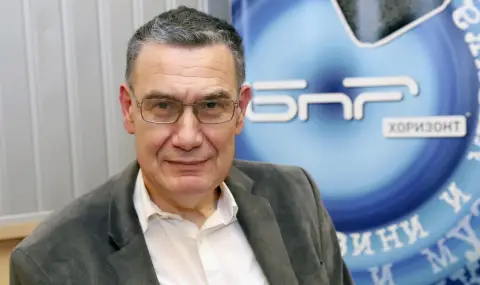These things that Orbán said in his two speeches, to me at least they are not new as his position. He has suggested them many times in different ways, in different forums. Yes, he thinks so, Brussels does not understand Viktor Orbán's desire for a revival, let's say, of the national state on the territory of Hungary, but not only on the territory of Hungary. His appeal is also to the rest of the least Eastern European countries, members of the Union, but also to other European countries that did not have such a historical fate.
Because the desire to see in the national state a relatively suitable solution to some of the problems, I emphasize not all, but some of the problems that are haunting Europe today, for example all of Southern Europe, and in Italy and Portugal , and in Spain there are such attitudes. So it is not entirely honorable to be surprised by Viktor Orbán's position.
This is what the international analyst Miroslav Popov said in the audiocast of “Focus" “This is Bulgaria" on the occasion of Hungarian Prime Minister Viktor Orbán's speeches on the eve of the upcoming European elections.
According to him, in the last 10 years, Viktor Orbán's speeches were, as a rule, received negatively by certain structures in Brussels, and in some cases this negativity reached very high levels.
When asked why both speeches, especially the one at the International Conference of Conservative Political Action, sound like a manifesto for replacing liberalism with nationalism, Popov believes that regarding the idea of significantly improving, changing, rejecting the failed model, this question Viktor Orbán is very categorical. "The current European liberal model has failed. And here we can already talk perfectly concretely, sphere by sphere, some will agree with the arguments about the failure, others will think the opposite. Orbán is taking advantage of the silent non-participation, or rather Brussels' ignoring of criticism of Brussels. And that's why Brussels will now pay for itself, how solidly I can't say. Because one should not underestimate the powerful, let's call them ideological, resources available to the Brussels administration and, of course, the related structures throughout Europe.
"I have quite serious remarks about Viktor Orbán's speech, I read it, in some points I agree with him. But Viktor Orban has not found this “speculative way of defining the current legal order". It is about two things - firstly about the hegemony that has prevailed in the last 35 years, for example said once. And secondly, for the consolidation of hegemony with an ultra-globalism. In fact, in essence, Viktor Orbán is against ultra-globalism, at least it seems to me. If I sit down to talk to him, it might turn out that I didn't quite understand him. But for me, Orbán's opponent is ultra-globalism.
Ultraglobalism ultimately remains the understanding of a monopolar world, with a center that does not necessarily have to be a specific country, for example, the hegemonic state, but it can be a bit more flexible, it can be a network of structures. We still live in the age of networked societies. And this is the hidden position of power, of global power. That's where it all starts - we understand or don't understand global power, we recognize or don't recognize its existence. And if we admit it, how should we act? On this issue, not only in Europe, but in the whole world, there is a lack of a sufficiently prominent vision, assessment, concept, it is missing", the international analyst also stated.
